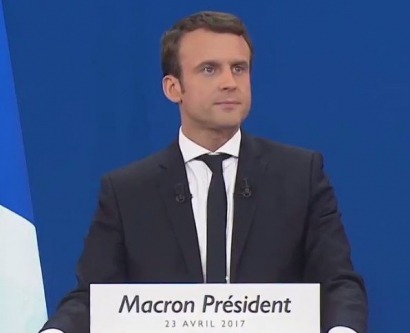
The issue of climate change has risen in importance in France over the past several years, making the position of the candidates on this and related environmental issues a vital factor in the election.
Both candidates have claimed they want to increase the use of solar energy if elected. Macron has promised to double installed photovoltaic (PV) capacity by 2022. LePen claims she will push for massive deployment of solar and biomass under what she terms “intelligent protectionism,” a term she has also used to describe a variety of proposed trade policies.
Macron has stated he will hold to the current 2030 target set forth in France’s 2015 Energy Transition Law which aims at covering 32% of national electricity demand with clean energies and reducing the share of nuclear energy by 50% by 2025. He also stated he will not attempt to go beyond the 50% limit saying, “Nuclear in France has a future” and will be here “for decades.”
LePen supports maintaining and modernizing France’s nuclear plants stating ending nuclear energy would be tantamount to France “shooting itself in the foot.” She has not specifically addressed the 2015 Energy Transition Law.
A ban on all fracking is favored by Macron, while LePen appears willing to allow it so long as all health, safety and environmental issues are addressed.
Neither candidate denies climate change however, Macron supports implementation of the Paris Agreement while LePen has not specifically addressed the issue. Her party, the Front National has opposed pursuing global climate changes agreements in the past.
Macron said he intends to double solar and wind installed capacity by 2022 while reducing the bureaucratic procedures to install solar and renewable energy. LePen would like to see an immediate moratorium for wind power.
Most pundits and analysts believe Emmanuel Macron will win the election on May 7. Macron told a rally in Paris he would carry "the voice of hope that we want for our country and for Europe," into the second round.

